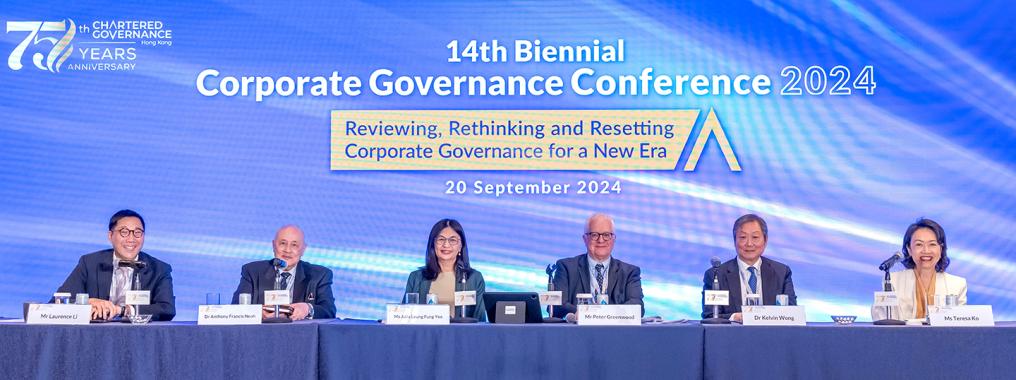Polly Wan, Tax Partner & Tax Controversy Leader, Southern Region, Hong Kong, and Sandy Go, Senior Tax Manager, Deloitte China, discuss whether tax planning is unethical or a natural evolution of business expansion, and examine recent developments in the international tax arena designed to make tax competition fairer.
Highlights
- tax planning – as opposed to tax evasion or avoidance – involves legitimate arrangements to manage or reduce a company’s tax expenses to a reasonable level, and must be properly addressed
- by understanding tax incentives and preferential treatments in the different jurisdictions where they operate, companies can optimise their tax burdens and maximise their shareholder returns, while contributing to the economic development goals of those jurisdictions
- implementation of the global minimum tax under Pillar Two of the BEPS 2.0 project is one of the most prominent and immediate measures being adopted by most jurisdictions, including Hong Kong
Tax planning involves legitimate arrangements made by taxpayers to manage or reduce their tax expenses to a reasonable level. It differs from tax evasion or aggressive tax avoidance arrangements involving ‘artificial’ or ‘fictitious’ transactions. The public is aware that tax evasion is illegal and should be prohibited. However, certain groups consider tax planning to be legally acceptable but unethical, and think it should be avoided. They believe taxpayers who adopt tax planning arrangements are taking advantage of tax loopholes to avoid paying a fair share of tax.
Meanwhile, other groups suggest that only large conglomerates have the resources to implement sophisticated tax planning arrangements to generate tax benefits. This adversely affects competitiveness and is unfair to smaller companies that do not have the same level of resources.
The situation is especially acute where legitimate tax planning leads to multinational enterprises (MNEs) paying little to no tax. For example, a leading MNE might plan to sell its intellectual property (IP) rights to a subsidiary in a low-tax jurisdiction, paying a high price as a licence fee, thereby shifting its profits and tax obligations to a minimum. This raises a commonly asked question – is tax planning unethical?
Tax planning – a natural evolution of business expansion
As a result of the propagation of logistics and technologies, the world is becoming more interconnected. In this global village, it is a natural evolution for a successful business to expand from its home jurisdiction to seek and capture global opportunities. As we all know, different jurisdictions have different tax regimes covering tax rates, types of taxes and rules, reporting requirements and penal actions for non-compliance.
Before a global expansion, a sensible management team will plan to ensure their overseas operations function properly, optimise the tax charges and maximise their returns to shareholders. They will examine matters such as:
- Holding structure: withholding tax on future dividends – is there a tax treaty available to reduce withholding tax and how can a business qualify for the treaty benefits?
- Financing arrangements: do any thin capitalisation rules – meaning capitalising a company by debt instead of by capital contributions – in the intended outbound jurisdiction affect claims for deduction of interest expenses? Is it possible to make offshore and non-taxable claims related to interest income, and how can the business quality be improved for these?
- Supply chain: are there any customs duties or sales taxes?
- Locality and registration of IP: how can valuable IP developed over several years be protected and are tax incentives available to maximise the return from an IP?
Returns to shareholders can be significantly improved if these and other tax implications of a global expansion are considered in advance.
Tax incentives – fiscal measures to stimulate the economy
Tax legislation is not just a fiscal policy for governments to collect revenue – it can also promote and stimulate economic growth. For instance, in the 1990s, the Chinese mainland government provided tax breaks in designated areas and industries to successfully attract foreign investment. Singapore has various long-standing tax incentives to attract businesses from different sectors. Hong Kong has also recently introduced tax incentives to stimulate its economy. By understanding tax incentives and preferential treatments offered by the different jurisdictions in which they operate, companies can optimise their tax burdens while contributing to the economic development goals of governments in those jurisdictions.
At the same time, with the rise of geopolitical tensions, and with countries chasing finite tax dollars, there are tensions among states. Hence, tax planning must be properly assessed and should take into consideration a number of concerns, as well as international taxation developments.
A revolutionary mechanism to tackle aggressive tax avoidance – BEPS, tax transparency and global minimum tax (Pillar Two)
There is an old idiom: ‘one man’s meat is another man’s poison’. Tax incentives offered by governments can lead to tax competition. There is no denying that when a tax jurisdiction offers extremely attractive incentives to foreign investors, this can distort investment and trade patterns, and even harm the economic development of another jurisdiction.
Historically, some MNEs have shifted profits to low-tax jurisdictions with minimal business activities solely to enjoy low tax rates (known as base erosion and profit shifting, or BEPS). Since 2019, with the introduction of economic substance rules in many jurisdictions, companies must have economic substance in a given jurisdiction – such as staff, an office or operating expenses – to continue enjoying that jurisdiction’s low tax regime. Establishing a shell company to enjoy preferential tax treatment in the current tax environment is no longer feasible and is now regarded as a high-risk tactic under the tax rules brought in to address BEPS.
establishing a shell company to enjoy preferential tax treatment in the current tax environment is no longer feasible and is now regarded as a high-risk tactic under the tax rules brought in to address BEPS
Hong Kong’s Foreign Sourced Income Exemption (FSIE) regime was enhanced on 1 January 2023. Under the FSIE regime, some offshore income (such as interest, dividends, disposal gains or income from IP) will be tax exempt, provided that specific economic substance requirements have been met.
In addition, even where BEPS and other concerns are addressed globally, there is an emerging consensus that large MNEs must pay a fair share of tax. The Organisation for Economic Co-operation and Development (OECD) has spearheaded this matter and has responded to harmful tax practices where MNEs pay less than their fair share of tax by introducing various measures to counteract it. Implementation of the global minimum tax (GMT) under Pillar Two of the BEPS 2.0 project is one of the most prominent and immediate measures being adopted by most jurisdictions, including Hong Kong.
there is an emerging consensus that large MNEs must pay a fair share of tax
The rules of Pillar Two are complex (see ‘Pillar Two rules’). Pillar Two ensures that large MNEs pay a minimum tax on their income in each jurisdiction (that is, a minimum tax rate of 15%). For instance, if an MNE enjoys preferential tax treatment in a jurisdiction (for example, a 5% income tax rate), its ‘undertaxed profits’ are taxable according to a specific formula and mechanism. As a result, the MNE can no longer enjoy super-low taxes in a tax haven as they might have done in the past.
Tax planning and tax controversy
Recent developments in the international tax environment have made tax competition fairer. Society needs to be open-minded about legitimate tax planning. Rather than being unethical, an MNE optimising its tax charges through legitimate tax planning is appropriate for financial governance and responsible corporate management.
In this context, having a proper tax plan with a commercial rationale and sufficient documentary evidence is essential. Even legitimate arrangements could be challenged or set aside by tax authorities if there is no commercial justification or proper documentary evidence to support them. Most often, tax controversy arises from the availability, or lack thereof, of commercial justification and documentation, as well as the degree to which the tax authorities accept these. Taxpayers must, therefore, consider their tax arrangements carefully, maintain proper documentary evidence and seek professional guidance if tax authorities challenge them. This will ensure that their circumstances are explained accurately to tax authorities, enabling tax matters or inquiries to be resolved efficiently and effectively.
Pillar Two rules
Pillar Two includes specific rules for MNE groups with more than €750 million in revenue. It therefore only affects larger MNEs. At the risk of oversimplification, there are basically three rules, namely the:
- Income inclusion rule (IIR) will be applied by, and the top-up tax will be collected in, the jurisdiction of the ultimate parent in respect of the lowtaxed profits of the group entities located in the jurisdiction where the effective tax rate is below the global minimum tax rate of 15%.
- Undertaxed profits rule acts as a backstop rule and will be applied if the low-taxed income cannot be brought into charge under the IIR.
- Subject to tax rule applies to certain categories of related party payments such that treaty relief that would otherwise have been provided may be denied, if income is subject to tax on the recipient at a nominal tax rate below 9%.
There is a potential for arguments and tensions as jurisdictions seek to tax a share of an MNE’s revenue under the GMT rules, which adds to the need for proper tax planning and understanding of the complex dimensions under those rules.
All the above measures aim to create a fairer business environment.
Polly Wan, Tax Partner & Tax Controversy Leader, Southern Region, Hong Kong, and Sandy Go, Senior Tax Manager
Deloitte China



